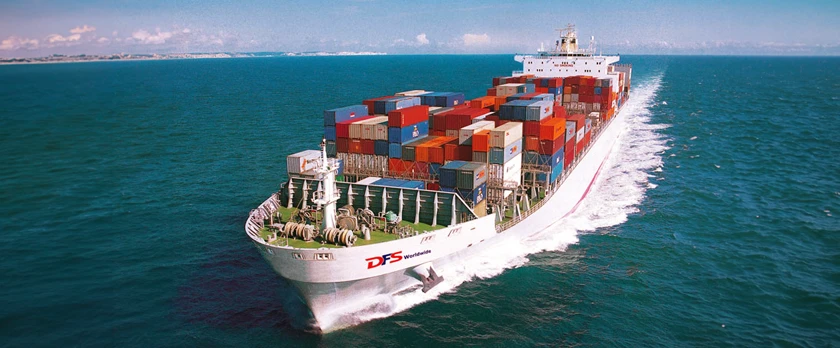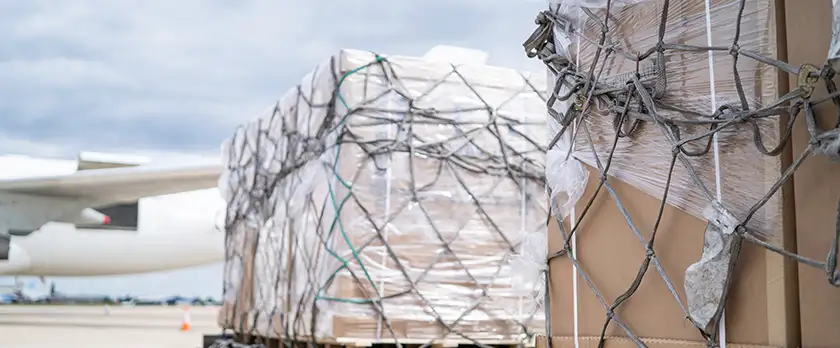UK ⇆ Oman Shipping Rates 2025
UK ⇆ OmanGet a Shipping Quote
Sea freight

FCL rates
| Oman | 20ft container | 40ft container |
| Muscat Seaport (Sohar) | £1520.00 | £1820.00 |
LCL rates
LCL shipping from our London office in Feltham TW14 post code to Oman ports
| Total Volume * | Muscat Seaport (Sohar) |
| 1 CBM | £120.00 |
| 5 CBM | £350.00 |
| 10 CBM | £550.00 |
| Destination | 50 kg | 200 kg | 500 kg |
| Muscat Seaport (Sohar) | £178 | £295.00 | £615.00 |
Air Freight

- Delivery of cargo can vary from 3 - 7 working days form Door to airport
- London Heathrow Airport to Muscat International Airport
Destination |
50 kg | 200 kg | 500 kg |
| Muscat International Airport - MCT | £120.00 | £220.00 | £480.00 |
| Salalah International Airport - SLL | £190.00 | £320.00 | £590.00 |
* Documentation surcharge applies to any shipping to Oman.
* For an accurate price,
please use our
online quotation form above and provide detailed information about your shipment requirement to Oman.
Exporting to Oman
Doing business in Oman: Oman trade and export guide
1. Oman export overview
Oman is the second largest state in the Arabian peninsula and is a founding member of the Gulf Cooperation Council (GCC). Around 44% of Oman’s population are expatriates.
The energy sector makes up over 50% of Gross Domestic Product (GDP) and 75% of its export earnings.
Oman is ranked 66th in the World Bank’s ‘Ease of Doing Business’ survey.
UK companies operating in Oman include Carillion, Interserve, Taylor Woodrow, Atkins, Mott McDonald, Petrofac, Jacobs, Turner & Townsend, Shell, BP, Ultra Electronics, Babcock, CfBT, BAE and Rolls Royce.
A number of British banks, law and accounting firms and smaller service organisations also operate successfully.
Benefits for UK businesses exporting to Oman include:
- UK is Oman’s biggest foreign investor
- English is widely spoken and accepted as a business language
- British standards are widely used
- 7,000 UK residents make up the largest Western expatriate segment
- majority of western tourists come from the UK
Strengths of the Omani market include:
- strong government investments in infrastructure, healthcare and education
- no personal income tax
- full repatriation of capital, net profit and royalties
- proximity to other Gulf markets
- good connectivity by air to all major cities
2. Challenges
A high level of business loyalty and a long term approach are essential for success in this market. Challenges include:
- time it takes to set up a local operation (if outside of the free trade zones) and to obtain the required government licenses
- local ownership requirements (if outside of the free trade zones)
- Omanisation – need to employ Omani nationals
- risk of payment delays
3. Growth potential
3.1 Economic growthReal annual GDP Growth (%) in 2014 was 2.9% compared with the Omani government’s own forecast of 5% in its 2014 budget.
Investment in the oil and gas sector continues to grow as this is Oman’s key economic priority. However, Oman remains outside the Organisation of Petroleum Exporting Countries (OPEC).
Oman’s economic policies aim to create more private sector jobs and encourage greater diversification by developing other sectors including:
- petrochemical
- metals and minerals
- ports and logistics
- fisheries
- tourism
Oman has a FTA with the USA.
The GCC is negotiating with the European Union (EU) for a free trade agreement.
4. UK and Oman trade
UK exports to Oman totaled around £551 million in 2014.
UK’s main exports include:
- machinery, tools and equipment
- construction products
- education and training
- business services
- defence equipment
The UK is Oman’s largest source of Foreign Direct Investment (FDI) with over £3 billion of investment, mainly in the hydrocarbons sector (BP and Shell).
5. Opportunities for UK businesses in Oman
Exhibitions held in the United Arab Emirates (UAE) draw a large number of Omani visitors. Major exhibitions include:
- Big Five (construction)
- Index (buildings)
- Gitex (IT/Telecoms)
- ArabHealth
- new build ports, airports, roads, hotels and resorts
- industrial and special economic zones
- new 2,244 kilometer railway line connecting to the GCC rail network
- new hospitals and health centres
Contact the DIT team in Muscat for more information on opportunities in the infrastructure sector in Oman.
Oman proactively encourages foreign investment in this sector. New onshore and offshore concessions have been issued.
There are opportunities for UK companies throughout the supply chain.
Over the next 15 years BP will drill 300 wells to flush gas trapped deep under the Omani desert. This project is worth £9.8 billion. BP has also recently announced a Memorandum of Understanding to develop a new petrochemical project in Duqm.
The Joint Supplier Registration System (JSRS) is a mandatory procurement requirement if you wish to secure direct contracts with any of the oil and gas operators in Oman, which are subject to ministerial approval.
The In-Country Value (ICV) initiative promotes the increased use of local workforce, sub-contractors and supply chain. It’s a priority in Oman’s energy sector. Many government funded projects also insist that local Small and Medium Enterprises (SME’s) make up at least 10% of the supply chain.
5.3 HealthcareThe Department of Health’s Health ‘Vision 2050’ is a long term strategy. It also has short term 5 year health development plans. The main focus for the next 5 year plan includes:
- construction of 7 hospitals, 5 health complexes and 27 health centres
- expansion projects for some of the existing health institutions in all governorates
Nearly £1 billion has been allocated in 2014 for the government capital spending plan for the sector.
There are supply chain opportunities to support the health development plan:
- governance and leadership
- health information system and use of data
- Human Resources (HR) as a lack of expertise in advanced health care
- technology including equipment, digital systems, surgical equipment
- quality of care
More projects will be announced when the next 5 year cycle starts.
5.4 Education and trainingThe UK remains one of the preferred destinations for Omanis studying overseas. British standards are widely applied in the educational system. This has resulted in many UK affiliations with private local universities and colleges. The use of British standards for vocational training is also very popular.
Oman is investing heavily in public and private schools to revamp its primary and secondary education system. It’s also investing in universities to increase capacity in higher education.
Oman is seeking to bridge the gap between the Omani educational system and the skills needed to enter the employment market.
There is also a growing demand for education and care for children with special needs and disabilities.
There is a range of opportunities in this sector, including:
- vocational training in the private sector
- consultancy, training and project management services to public sector
- improvement of special needs facilities and equipment
- academic affiliations with private higher education institutions
- research and development partnership with further education institutions
- establishing new early year/nurseries and primary private schools
6. Start-up considerations
A long term approach and focus on relationship building are essential for successful market penetration and for sustaining market share.
Local partnerships or agents often play a crucial role in product promotion and marketing in this market. The success of a product, in many cases, will depend on the local agent.
A dozen or so family owned business groups dominate this market. The main groups are are:
- Suhail Bahwan Group
- Saud Bahwan Group
- Galfar
- Zubair Enterprises
- Omar Zawawi Establishment (OMZEST)
- Khimji Ramdas
- W J Towell
- Tawoos (Renaissance Group)
- Mohsin Haider Darwish (MHD)
Most large contractors have either in-house sourcing ability, or an associate trading company dealing in supplies and equipment that complement their activity.
To establish your business in Oman you need to be represented locally by someone at the level of decision maker. The options include:
- branch office, which is only applicable for contracts with Omani government or quasi-government entities
- Commercial Representative Office (CRO)
- Commercial Agency
- Limited Liability Company (LLC)
Commercial agencies are governed by the Commercial Agencies Law (Royal Decree 26/1977). An Omani agent supplies goods or services in Oman on behalf of a foreign principal which does not have a registered entity in Oman. Agency agreements:
- must be registered with the Ministry of Commerce and Industry (MoCI)
- can be difficult to terminate, even if it is a fixed term agreement
- are often weighted in favour of the agent
Oman Courts generally award 2 to 3 years net profits as compensation for wrongful termination or unjustified failure to renew an agreement.
7. Legal considerations
7.1 Standards and technical regulationsThe Directorate General of Standards and Specifications at the MoCI has responsibility for standards. British, US, Japanese and European standards are usually well accepted because local production is limited.
Agents, importers or cargo companies can provide guidance and advice about labelling and packaging regulations.
7.2 Intellectual Property (IP)The Patents and Trade Marks Directorate oversees IP related issues.
Enforcement of Intellectual Property Rights (IPR) can be poor. However, challenges can often be successful.
8. Tax and customs considerations
The UK and Oman have signed a double taxation agreement. The Ministry of Finance oversees this sector.
8.1 Value Added Tax (VAT)VAT is not charged locally.
8.2 Corporate taxA 12% uniform tax rate is applied to all types of tax payers.
Taxpayers include sole proprietorships, companies registered in Oman and permanent establishments of foreign companies.
A withholding tax of 10% is levied on certain types of payments.
8.3 Income taxThere is no personal income tax in Oman.
8.4 CustomsThe Royal Oman Police (ROP) is responsible for all customs related matters.
Most products are subject to a 5% duty. However, some products such as alcohol, cigarettes and pork products attract a higher rate.
You can find more about import tariffs in the Market Access Database.
8.5 DocumentationImporters, banks, the Arab British Chamber of Commerce as well as the Oman Embassy in London can provide information on required documentation.

